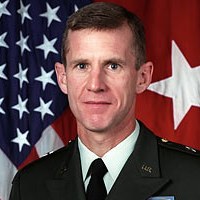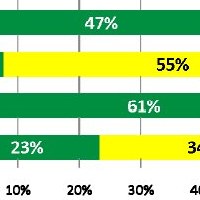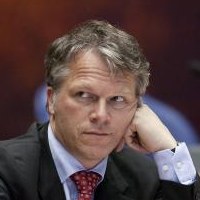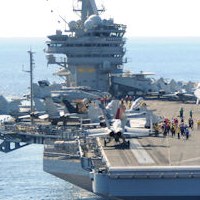![]()
Zaterdag, 15 Januari 2011 | Bewerkt door Crethi Plethi
WikiLeaks: Discussie over Verlenging Missie Uruzgan
Document: Ambtsbericht van de Amerikaanse ambassade in Den Haag over de discussie in de Nederlandse politiek over de verlenging van de ISAF Missie. De Nederlandse regering heeft op dat moment, op 7 mei 2007, een brief over geschreven naar de Tweede Kamer. Alle opties liggen dan nog op tafel. Die zomer zal besloten worden of Nederland opnieuw zal deelnemen aan de missie.
Bron: WikiLeaks/NOS
”
114457,7/5/2007 16:17,07THEHAGUE1295,”Embassy The
Hague”,SECRET//NOFORN,,”VZCZCXYZ0000
OO RUEHWEBDE RUEHTC #1295/01 1861617
ZNY SSSSS ZZH
O 051617Z JUL 07
FM AMEMBASSY THE HAGUE
TO RUEHC/SECSTATE WASHDC IMMEDIATE 9745
INFO RUEHZG/NATO EU COLLECTIVE PRIORITY
RUEHBY/AMEMBASSY CANBERRA PRIORITY 2662
RUEHBUL/AMEMBASSY KABUL PRIORITY 0283
RUEKJCS/DIA WASHDC PRIORITY
RUEAIIA/CIA WASHDC PRIORITY
RUEKJCS/CJCS WASHDC PRIORITY
RHEHNSC/NSC WASHDC PRIORITY
RUEKJCS/SECDEF WASHDC PRIORITY
RHMFISS/HQ USCENTCOM MACDILL AFB FL PRIORITY
RUEABND/DEA HQS WASHINGTON DC PRIORITY
RUEAFVS/OSD WASHINGTON DC PRIORITY
“,”S E C R E T THE HAGUE 001295SIPDIS
NOFORN
SIPDISSTATE FOR SCA, EUR/RPM, EUR/UBI
E.O. 12958: DECL: 07/05/2017
TAGS: PGOV, PREL, NATO, AF, NL
SUBJECT: NETHERLANDS/AFGHANISTAN: EXTENSION REVIEW
OFFICIALLY BEGINSClassified By: Ambassador Roland Arnall, reasons 1.4 (b,d)
1. (C) Summary: The GONL sent a letter to the Dutch
Parliament on June 30 noting it will decide this summer
whether to extend its ISAF mission in Afghanistan. The
decision will follow an exhaustive review of all options,
including staying in the mission’s current capacity, reducing
its contribution or moving to another location, or even
withdrawing altogether. Cabinet officials have stressed that
“”all options are on the table,”” while public statements by
Defense Minister Eimert van Middelkoop in favor of remaining
in some capacity may have tipped the hand of the GONL and
temporarily unsettled the political process. Dutch officials
are cautiously optimistic that the conditions are in place to
arrive at a positive extension decision, but stress that
sequencing is vital: first the review of options, then
consultations with Allies, followed by a decision and
subsequent debate with Parliament. End summary.Important First Step
——————–2. (C) Following its June 29 meeting, the Dutch Cabinet sent
a letter to Parliament stating that the GONL will decide this
summer whether it will extend its ISAF mission in Afghanistan
beyond August 2008, and if so, in what capacity. The letter
notes that the Cabinet will investigate the “”options and
desirability of continuing to make a contribution”” to ISAF.
The review will be conducted in accordance with the set
criteria required for parliamentary consent prior to
deploying Dutch troops abroad (“”toetsingskader””). The letter
formally begins the Article 100 process — more importantly,
it means the GONL can formally solicit contributions from
other NATO Allies to team with the Dutch in Uruzgan province.3. (S) In a July 2 meeting with Ambassador Arnall, Pieter de
Gooijer (MFA Director General for Political Affairs)
confirmed that issuing the letter represents an important
step toward a possible extension. Although, for political
reasons, the GONL remains restricted from expressing support
for a particular option, de Gooijer said it “”was fair to say””
that the Cabinet appears to be quietly moving in that
direction. He stressed, however, that there is not yet a
firm consensus within the Cabinet, and some members are still
holding out for significant concessions (e.g., more money for
Defense, a significant mission in Africa for Development).
De Gooijer noted that the six key ministers (the Prime
Minister, two Deputy Prime Ministers, and the ministers of
Foreign Affairs, Development and Defense) will meet on July
12 to consider next steps and hopefully steer the process in
a positive direction.One Step Beyond
—————4. (C) Following the June 29 Cabinet meeting, Cabinet
ministers emphasized to the press that “”all options were
currently on the table,”” and that the GONL would decide
whether to extend once the review of options had been fully
completed. During one of the press interviews, however,
Defense Minister van Middelkoop seemingly tipped the hand of
the GONL by noting that “”the political intention is to stay,
be it in a more modest form.”” He explained that other Allies
should take more responsibility, and that some tasks could be
phased out to Allies, thereby leading to a trimmed-down Dutch
extension. Van Middelkoop acknowledged that ending the
mission was an option, but “”the intention is to continue in
some form.””5. (C) Van Middelkoop’s remarks prompted a firestorm of
criticism from both supporters and critics of the current
mission. Supporters lamented that van Middelkoop hamstrung
the extension review before it started as critics will argue
that any such review will be subjective in nature as the GONL
attempts to achieve van Middelkoop’s stated desire to remain
in Uruzgan. Critics worried that van Middelkoop’s remarks
might send the wrong signal to NATO and Washington, thereby
lifting them off the hook by telling them it was not
necessary for military planners to initiate contingencies
should the Dutch opt not to extend.6. (C) Following van Middelkoop’s remarks, Prime Minister
Balkenende clarified the GONL “”official position”” — the
Dutch will investigate whether to continue, and if so, “”how
and in what way.”” But in no sense had the GONL made any
decision on an extension. He emphasized that “”matters should
be done in the right order,”” and declined to acknowledge any
current political intention to extend. Balkenende added that
the decision should be made with careful consideration of all
arguments — “”all options remain on the table.”” He said the
GONL’s decision would be made this summer, perhaps as late as
September, following a “”very intensive process.””… And a Step Backwards
————————7. (C) Van Middelkoop began the July 2 parliamentary hearing
on Afghanistan by backtracking on his earlier comments. He
characterized his remarks as a “”slip of the tongue,”” and
emphasized that the GONL would first review all options prior
to making any decision to extend. Van Middelkoop reiterated
this clarified position on July 3 in a meeting with
Ambassador Arnall. He stressed that “”all options were on the
table”” and that his suggestion that the Dutch remain in a
limited capacity was “”a mistake,”” and not a case of “”being
too honest.”” Van Middelkoop said his remarks required an
apology to Parliament, for which he was “”beaten up for 15
minutes,”” and then the Afghanistan debate continued as it had
previously.8. (C) In his meeting with Ambassador Arnall, van Middelkoop
commented on the Dutch participation in heavy fighting around
Chora in the previous few weeks. He said the Dutch had been
“”very lucky”” that the Dutch commander on the ground had made
the right tactical decision to stay and fight. Van
Middelkoop also praised the Afghan security forces, noting
that they had “”fought well.”” He said there was still some
fighting and instability in the region, which was one of the
major reasons why he was visiting Afghanistan on July 5-6.9. (C) Van Middelkoop also commented on prospects of
persuading the Dutch Parliament to support an extension. He
said part of his challenge with Parliament involves the
position of his predecessor and current parliamentary member
Henk Kamp, who has adamantly stated that the Dutch deployment
in Uruzgan should last for two years, and “”only two years.””
In order to overcome Kamp and others, van Middelkoop said the
GONL must present sound arguments — “”the military,
political, and financial lines of reasoning all must be
convincing.”” Ambassador Arnall commented that van Middelkoop
has more flexibility on the ground than Kamp, to which the
Defense Minister smiled.10. (C) Officially, the GONL does not yet have an opinion on
any particular option. But in private, van Middelkoop said
the best option to extend in Afghanistan probably involves a
more modest contribution with the support of additional
partners. He characterized the partnership with Australia as
good, but said more help was needed from other Allies in
order to convince Parliament. He said the next step was for
he and Foreign Minister Verhagen to travel to NATO and make
the case for additional assistance. He assessed the
political situation on a possible extension as typical
“”coalition politics,”” and repeated previously made remarks
that “”we are still in the fog”” regarding an extension, “”but
we are moving in the right direction.””Parliamentary Hearing
———————11. (C) In a three hour parliamentary session o July 2,
parliamentarians from both sides of thepolitical spectrum
raised concerns regarding the heavy fighting around Chora and
subsequent civilian casualties. They initially lambasted van
Middelkoop for his comments regarding the political intent to
extend, but later seemed to accept his apology.
Parliamentarians from the left, including Socialist Harry van
Bommel and Green Left Mariko Peters, said van Middelkoop’s
comments will send NATO and Washington the “”wrong signal,””
especially as NATO is “”responsible”” for finding an Ally to
replace the Netherlands — “”now NATO will think that the
Dutch will extend and plans to replace us will not commence,””
said van Bommel.12. (C) No new arguments were raised during the hearing.
While all members of the parliamentary foreign affairs
committee raised concerns about civilian casualties, all
comments made were reasoned and emotionally restrained. Both
Verhagen and van Middelkoop noted four on-going
investigations (the Dutch military, the UN, ISAF, and Human
Rights Watch) following the fighting in Chora, and promised
to deliver results of the investigations as soon as they
become available. Separately, MFA Task Force Uruzgan
Coordinator Pieter Jan Kleiweg de Zwaan told emboffs July 3
that they expect the Dutch military investigation to be
completed on or around July 10. Privately Kleiweg was
worried that the investigations might contradict one another,
further muddling an already confusing situation.13. (C) Other concerns voiced by parliamentarians included
the cost of the deployment, poppy eradication, and relations
with Pakistan. Both Verhagen and van Middelkoop said it was
“”too simplistic”” to classify the Dutch deployment as either a
military or reconstruction mission — both are necessary in
order to be successful. Verhagen argued that intense
fighting in Chora did not mean that reconstruction in Uruzgan
was impossible. Development Minister Koenders began to lay
the foundation necessary to make the argument later in the
summer and fall that reconstruction was not only possible,
but in fact working in Uruzgan. In response to a question
from Labor Party (PvdA) spokesperson Angelien Eijsink, van
Middelkoop refuted claims made in the Dutch periodical
Elsevier that the Dutch military had released a senior
Taliban leader. He explained that Afghan authorities had
initially made the arrest, and the Dutch offered to hold the
individual briefly before returning him to Afghan
authorities.Government Strategy
——————-14. (S) While cautiously optimistic, the working level
continues to emphasize PM Balkenende’s message that the GONL
“”check all the boxes”” during its review prior to making an
official extension decision. Kleiweg told emboffs July 2
that the six ministers most responsible for making a decision
to extend (Balkenende and Verhagen from the Christian
Democratic Alliance, Deputy Minister/Finance Minister Bos and
Koenders from the Labor Party, and Deputy Minister/Minister
for Youth and Family Affairs Rouvoet and van Middelkoop from
the Christian Union) have already met on several occasions,
and dynamics among the ministers are “”good.”” Kleiweg
characterized the ministers as “”moving in the right
direction,”” and deflected suggestions that Finance Minister
Bos might be problematic. He said “”The Six”” will meet again
on July 12 prior to the summer break to discuss various
extension options.15. (C) Kleiweg noted that the Dutch have yet to formally
solicit contributions from other NATO Allies to any Dutch
etension in Uruzgan. He said the GONL first will idntify
options and possible tasks that could be flled by others
prior to approaching Allies. Kleweg acknowledged that the
Dutch are “”picky”” whenit comes to the question of which
Allies to apprach — any potential partner has to “”speak the
sae language”” and possess a “”similar outlook”” when i comes
to reconstution efforts. He also noteda certain
reluctance on the part of the Dutch miitary to incorporate
elements from yet another mlitary — but such hesitancy will
need to be overome should the review determine the best
chance f an extension involves teaming with another Ally.16. (C) Once tasks and partners are identified, Kleiweg said
the USG and SACEUR could be helpful in persuading these
Allies to team with the Dutch — provided the government opts
for an extension. When asked about possibly teaming with
U.S. forces, Kleiweg said the Dutch “”have no problem”” with
U.S. forces under ISAF command. He noted, however, that
OEF/ISAF deconfliction continues to be a sensitive issue in
the Netherlands, especially as the dividing line between the
two becomes more blurry.17. (C) Low public support for both the current mission and
any extension continues to be a problem. Kleiweg said the
GONL is looking at respected “”international voices”” to enlist
to try and influence public opinion. He noted that the GONL
had arranged through NATO the visit of several Afghan
parliamentarians to the Netherlands. While the trip was a
success, Dutch and Afghan media considered the visit “”NATO
propaganda,”” Kleiweg said. He noted that the individual with
the most power to change Dutch public opinion was Afghan
President Karzai, but acknowledged even that might have
changed in recent weeks given Karzai’s criticism of the Dutch
military action in Chora. Kleiweg said Karzai intends to
visit the Netherlands in December — “”hopefully long after
the Dutch have made a decision on extending,”” he added.
Uruzgan Gov. Monib might be another option, although Kleiweg
said GONL relations with Monib are no longer that strong as
Monib appears more interested in events in Kabul than in
Uruzgan, while Monib’s travel ban remains problematic. Other
international respected voices might include individuals such
as UN SYG Ban Ki-Moon, Kleiweg said.Detention Policy
—————-18. (C) Kleiweg told emboffs July 3 that the GONL has
circulated a draft letter among RC-South contributing nations
to the Afghan government requesting greater access for the
Afghan Independent Human Rights Council to detainees held in
Afghan prisons. The draft letter was an action item derived
from the latest RC-South conference held in The Hague in June
2007. According to Kleiweg, the GONL, as well as the
governments of Canada, the United Kingdom, Denmark, and
Australia have all approved the draft letter. He inquired if
the USG had reviewed the letter and had any comments; emboffs
said they would check with Washington.Inter-Governmental Dynamics
—————————19. (S//NOFORN) Working level contacts describe the
relationship between Verhagen and Koenders as “”contentious
but not outright hostile.”” Instead of direct confrontation,
the two often wage battles through their staffs at the
working level, said MFA Security Affairs Chief Robert de
Groot. That said, when the two ministers agree, the
resulting decision has added weight and is often “”ironclad.””
Van Middelkoop is described as “”the third wheel,”” or the
“”inexperienced junior partner”” by working level contacts.
While substantively knowledgeable, his inexperience in the
government is obvious, and he often defers to Verhagen and
Koenders.20. (S//NOFORN) According to working level contacts, Koenders
has a “”voracious apetite”” for information on Afghanistan —
“”he want to know how many grains of sand are in Uruzgan,””
said Kleiweg. While he has an almost equal statu to
Verhagen on Afghanistan behind closed doors,Koenders resents
being viewed as subordinate to he other two ministers in
public. “”He cannot stad waiting for two hours to speak
during a parliaentary hearing, and then be restricted to
only tn minutes of speaking time,”” said Task Force Deput
Coordinator Dewi van de Weerde. Working level ontacts also
describe him as incapable of making decision, which could
play into extension consierations.Comment
——-21. (S) Van Middelkoop’s comments — while seemingly positive
from our perspective — temporarily unsettled the political
debate on extending. Cabinet members were reportedly
incensed by van Middelkoop’s blunder, but his public mea
culpa seems to have appeased naysayers in Parliament.
Despite it, the GONL once again appears to be on the same
page in its efforts to create the conditions necessary to
arrive at a positive extension decision. There is a process
— an exhaustive review followed by consultations — that
must be followed in order for this to work, and Balkenende is
shepherding it through. Finance Minister Bos could still
prove problematic, but working level contacts suggest he will
be reasonable. As the Dutch are fond of saying, “”do not
disturb the brooding hen”” — which we will no doubt hear
often over the course of the summer and into the fall.ARNALL



 RSS
RSS












#WikiLeaks: Discussie over Verlenging #Missie #Uruzgan | #US #Nederland http://j.mp/gwOCjW
RT @CrethiPlethi: #WikiLeaks: Discussie over Verlenging #Missie #Uruzgan | #US #Nederland http://j.mp/gwOCjW